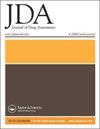Estimating the value of pharmacist interventions in a specialty pharmacy setting
IF 2.4
引用次数: 0
Abstract
Abstract Background: As the pharmacist (RPh) role has evolved from a dispensing to a clinical focus, the need to demonstrate the value of routine RPh interventions is necessary to drive the profession forward. In 2018, Saulles and Chang reported an estimate of the financial impact of 716 RPh interventions in a regional health system specialty pharmacy to be $299,415. While RPh-led anticoagulation and medication therapy management (MTM) is well established with reducing medical costs, the value of daily specialty pharmacy care is not as well studied despite interventions being made frequently. Aims: The objective of this study was to analyze the interventions in a specialty pharmacy and to provide an estimate of the economic value in terms of both RPh time and the potential adverse events (AEs) or unnecessary medical costs prevented had the intervention not taken place. Methods: In this retrospective study, interventions documented at Ardon Health specialty pharmacy were categorized using a coding system. A way to identify certain interventions was developed to distinguish a subset of interventions (termed RPh impacts) that directly led to or had a high likelihood to prevent negative outcomes. Impacts documented in 2017 were reviewed by a RPh, and the actual or predicted outcome, such as avoidance of hospitalization or medication waste, was predicted. A financial value was then attributed to each impact. The 2006 Health Care Utilization Project report was used to estimate the costs of prevented hospitalizations. Other costs were estimated using emergency room (ER) visit costs available in the literature and actual costs of avoided medication waste. Two scenarios were completed: one in which all the prevented outcomes were predicted to occur, and one where 50% of the total cost of prevented outcomes would be incurred. Surveys were completed by the RPhs to estimate the average time per intervention to estimate the value of devoted RPh time. Results: A total of 14,441 interventions were documented, of which 115 were identified as RPh impacts. The total estimated value of interventions ranged from $2,518,442 to $4,603,358, with an estimated value per intervention of $174 to $319. Most of the RPh impacts were predicted to have prevented an unnecessary hospitalization. Conclusions: While the estimative nature of this analysis poses limitations, the analysis demonstrates the profound clinical and economical value of RPh care in a specialty pharmacy setting.评估药剂师干预在专业药房环境中的价值
摘要背景:随着药剂师(RPh)的角色从配药演变为临床焦点,有必要证明常规RPh干预的价值,以推动该行业的发展。2018年,Saulles和Chang报告称,对一家地区卫生系统专业药房进行716次RPh干预的财务影响估计为299415美元。虽然RPh主导的抗凝和药物治疗管理(MTM)在降低医疗成本方面已经建立起来,但尽管经常进行干预,但日常专业药房护理的价值并没有得到很好的研究。目的:本研究的目的是分析专科药房的干预措施,并根据RPh时间和未进行干预时预防的潜在不良事件(AE)或不必要的医疗费用来估计经济价值。方法:在这项回顾性研究中,使用编码系统对Ardon Health专业药房记录的干预措施进行分类。开发了一种识别某些干预措施的方法,以区分直接导致或极有可能防止负面结果的干预措施子集(称为RPh影响)。RPh对2017年记录的影响进行了审查,并预测了实际或预测的结果,如避免住院或药物浪费。然后将财务价值归因于每一次影响。2006年卫生保健利用项目报告用于估计预防住院的费用。使用文献中可用的急诊室(ER)就诊费用和避免药物浪费的实际费用来估计其他费用。完成了两个场景:一个场景预测所有预防性结果都会发生,另一个场景将产生预防性结果总成本的50%。RPh完成了调查,以估计每次干预的平均时间,从而估计RPh投入时间的价值。结果:共记录了14441项干预措施,其中115项被确定为RPh影响。干预措施的总估计价值从2518442美元到4603358美元不等,每次干预措施的估计价值为174美元到319美元。大多数RPh影响被预测为避免了不必要的住院治疗。结论:虽然该分析的估计性质存在局限性,但该分析证明了在专业药房环境中进行RPh护理的深刻临床和经济价值。
本文章由计算机程序翻译,如有差异,请以英文原文为准。
求助全文
约1分钟内获得全文
求助全文

 求助内容:
求助内容: 应助结果提醒方式:
应助结果提醒方式:


